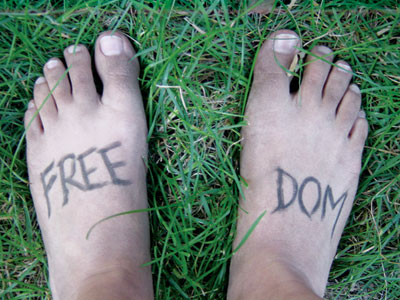All Nonfiction
- Bullying
- Books
- Academic
- Author Interviews
- Celebrity interviews
- College Articles
- College Essays
- Educator of the Year
- Heroes
- Interviews
- Memoir
- Personal Experience
- Sports
- Travel & Culture
All Opinions
- Bullying
- Current Events / Politics
- Discrimination
- Drugs / Alcohol / Smoking
- Entertainment / Celebrities
- Environment
- Love / Relationships
- Movies / Music / TV
- Pop Culture / Trends
- School / College
- Social Issues / Civics
- Spirituality / Religion
- Sports / Hobbies
All Hot Topics
- Bullying
- Community Service
- Environment
- Health
- Letters to the Editor
- Pride & Prejudice
- What Matters
- Back
Summer Guide
- Program Links
- Program Reviews
- Back
College Guide
- College Links
- College Reviews
- College Essays
- College Articles
- Back
No Plastic Attached
She is 5’11’’ with a curtain of shimmering blonde hair running down her back, ending just before her size double zero waste. Her fragile arms swing gracefully by her side as she glides across the floor on her long shapely legs. Her delicately sculpted features are topped off with large sea blue eyes, accented by jet black lashes. She is the epitome of perfection.
Or I could simply say: She is Barbie, and you get the picture.
Barbie has been a staple in the world of play for generations of girls. She is the best friend who has it all; a mansion, a convertible, a plane, a boyfriend, her own movies, and an endless supply of clothes. She’s a doctor, mother, model, and athlete. A friend with absolutely everything quickly becomes more than that. She becomes someone to be envious of, and someone to try and be like. Their life, body, and quirks all become the embodiment of your ideal “perfect” life. People are willing to go to great and sometimes unbelievable lengths in striving to be this model of perfection.
Though young girls, who Barbie targets, may not realize the extreme impact Barbie has on their lives; for many, it contributes to life long low self esteem, and a constant effort to modify oneself in order to fit societies mold of perfection.
Discontent with oneself can begin to take shape when young. Young children, especially girls, are hit with a barrage of messages from the media on how they should look, act, and what they should wear. The intensity of these messages only increases as girls head into their teen and young adult years. Barbie is just the beginning; as she makes her way out of girls lives, in come magazines like Seventeen, People, and Glamour. Shows like Pretty Little Liars and The Secret Life of an American Teenager place emphasis on looks and portray teens in a light that makes them think it is normal to act like a bunch of self centered divas. Shows with these messages dominate as shows for teens. Celebrities and ads promoting perfection are everywhere. Clothes brands such as; Aeropostale, American Eagle, Pink, Hollister, etc. all further ingrain the image of tall, skinny Barbie-esque models. Constant exposure to these messages are virtually unavoidable, and they have extremely detrimental impacts. Kids develop eating disorders and other harmful habits because no one is meant to have the body of Barbie. If Barbie were to be blown up to life size proportions, her legs would be ridiculously long and her head would be a few sizes too large. As for her waste, she would be unable to survive because her internal organs would be crushed.
The media’s lurking torment of perfection targets everyone it can in a vain attempt to sell products. I’m not saying the media is the bad guy out to get everyone; I’m saying, we as a society need to reassess our values and ask ourselves if this is right. Do we want to all strive to be like Barbie? As cliché as it may sound, you can come as close to Barbie’s perfection as possible, and still find things wrong with yourself. And really, what is it worth?
I understand there is a huge obesity epidemic in America. We have all seen hype about flat abs, weight loss programs, beach bodies, and such, as trying to motivate people to lose weight. But the image of perfection we are after, is unachievable for a healthy person. No matter how much weight someone loses on a diet, they are never going to be completely happy. And what about the already healthy people? They are being told to lose even more weight in order to have a haughty stick thin appearance. This is why people are developing eating disorders; people who are already at a healthy weight are losing more weight and then they start to slide down the other side of the carefully balanced weight bell curve.
We need to take action now and address not only the obesity epidemic, but the perfection epidemic as well. Models and actresses/actors are influential people. They should be required to have a healthy body weight, taking into consideration their height. If this new, healthier image does not start to be sent, society will be continuing to think, mindlessly: the skinnier the better, the skinner the better. We, as a society, spend an enormous amount of time planning, thinking, and preparing “health” food. Truth is, it is all a bunch of hype. We could be spending our time on other more important things that will contribute to our happiness, and not be causing us stress; after all, happiness, not the stress of perfection, is the best antidote for better health.

Similar Articles
JOIN THE DISCUSSION
This article has 2 comments.
34 articles 2 photos 658 comments
Favorite Quote:
"Don't punish yourself," she heard her say again, but there would be punishment and pain, and there would be happiness too. That was writing."<br /> --Markus Zusak, "The Book Thief"